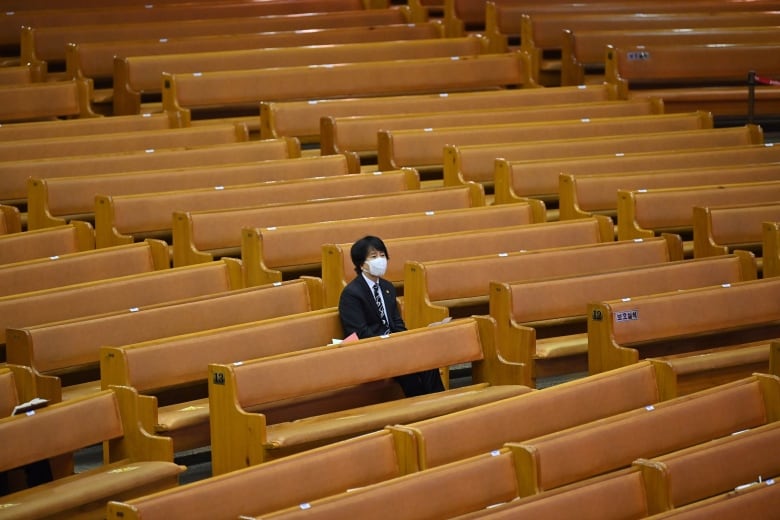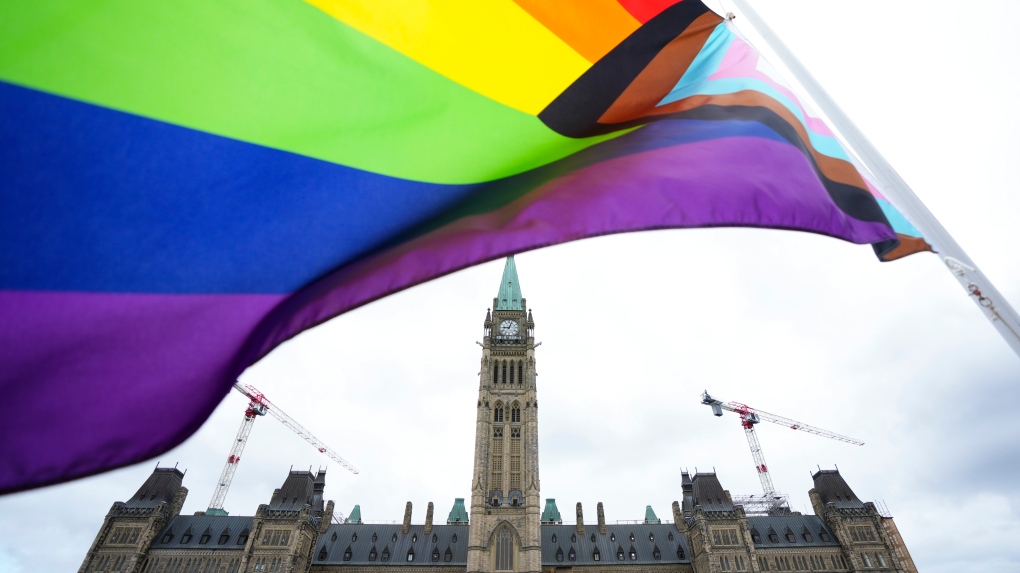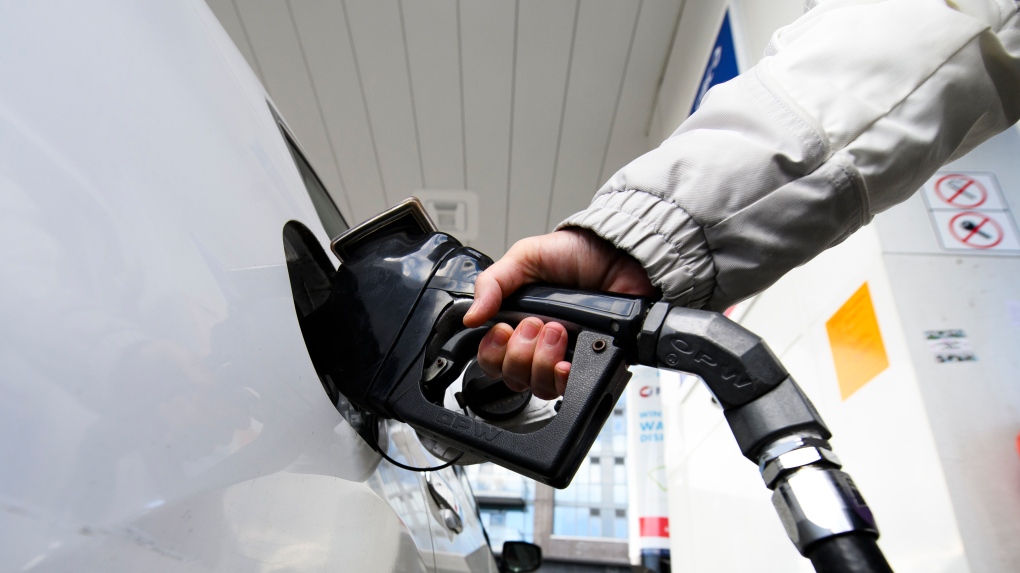News
Coronavirus: What's happening in Canada and around the world on Saturday – CBC.ca
The latest:
- Ontario enters provincewide lockdown in effort to curb rising COVID-19 case counts.
- Most Boxing Day shopping expected to happen online.
- Worldwide cases surpass 80 million.
- Millions of Americans lose jobless benefits as Trump refuses to sign aid bill.
- Have a question about COVID-19 in Canada? Send your questions to COVID@cbc.ca.
A provincewide lockdown meant to bring down COVID-19 case counts takes effect Saturday in Ontario.
The restrictions will remain in place for southern Ontario until Jan. 23 but will lift for northern Ontario on Jan. 9.
The move was announced on Monday after the provincial government took part in emergency talks last weekend.
WATCH | Provincewide lockdown comes into effect in Ontario:
New restrictions came into effect Saturday, placing the entire province of Ontario in lockdown. In some regions, the measures will stay in place until at least Jan. 23. 4:18
Under the new rules, restaurants can only provide takeout, drive-thru and delivery, including the sale of alcohol.
Supermarkets, pharmacies and retailers that primarily sell food can stay open for in-person shopping but with distancing and limits on capacity.
When the holiday break is over, children enrolled in publicly funded elementary and secondary schools will participate in remote learning from Jan. 4 to Jan. 8, and some longer depending on their age and area.
WATCH | Health-care workers reflect on difficult year, unite in holiday message:
Health-care workers have spent a year working through the pandemic and several ER doctors shared a united message while working during a difficult holiday season. 1:58
The lockdown began with Ontario reporting a two-day total of 4,301 cases of COVID-19.
Health Minister Christine Elliott said 2,142 new cases of the virus were reported on Saturday and 2,159 new cases were logged on Christmas Day.
The 4,301 new infections bring Ontario’s COVID-19 case total to 169,411, including deaths and recoveries. There are nearly 20,000 active cases of novel coronavirus infection across the province.
There were 38 deaths reported on Saturday. Forty-three people died on Friday, bringing the total number of deaths reported since the pandemic began to 4,359.
What’s happening in Canada
As of about 11:30 a.m. ET, Canada’s COVID-19 case count stood at 539,547, with 76,523 of those cases considered active. A CBC News tally of deaths stood at 14,801.
Aside from Ontario, the only provinces to release new numbers so far on Saturday are New Brunswick and Alberta.
New Brunswick announced two new cases, which means the province now has 38 active cases. There have been eight deaths and one person is in hospital, in the intensive care unit.
In Alberta, Chief Medical Officer of Health Dr. Deena Hinshaw released a modified update on Saturday. The province saw an estimated 1,200 new cases on Dec. 24 and 900 new cases on Dec. 25. There was a small increase in the number of patients in the province’s ICU, Hinshaw said on Twitter.
Here is today’s <a href=”https://twitter.com/hashtag/COVID19AB?src=hash&ref_src=twsrc%5Etfw”>#COVID19AB</a> modified update:<br><br>On Dec. 24, there was an estimated:<br>- 1200 cases<br>- 17,800 laboratory tests<br>- 7% positivity<br>- hospitalizations – small increase<br>- ICU – small increase
—@CMOH_Alberta
Boxing Day is supposed to be the post-Christmas shopping day that deal hunters have been waiting for, but with non-essential retail shuttered or restricted across much of the country, the usual crowded malls and long lineups are expected to be replaced with internet searches and online orders.
Ontario, Quebec and Manitoba have all closed non-essential retail, while much of the rest of the country has curtailed in-store capacity.


Farla Efros, president of HRC Retail Advisory, says there will be fire-sale prices on some items.
She said retailers don’t want to get stuck with a backlog of holiday and seasonal inventory and also need to shore up their balance sheets in the face of mounting lockdowns and restrictions.
WATCH | Pfizer, Moderna vaccines can be modified to tackle variants, expert says:
According to infectious disease specialist Dr. Zain Chagla, vaccines that use mRNA technology can be reverse engineered quite quickly to take on variants — such as the recent U.K. variant of the coronavirus. 1:42
What’s happening around the world
As of noon ET on Saturday, more than 80 million coronavirus cases had been reported worldwide, with more than 45.1 million cases considered recovered or resolved, according to a running tally kept by Johns Hopkins University researchers. The global death toll stood at more than 1.7 million.
In the Americas, millions of people in the U.S. saw their jobless benefits expire on Saturday after U.S. President Donald Trump refused to sign into law a $2.3 trillion US pandemic aid and spending package, protesting that it did not do enough to help everyday people.
Trump stunned Republicans and Democrats alike when he said this week he was unhappy with the massive bill, which provides $892 billion in badly needed coronavirus relief, including extending special unemployment benefits expiring on Dec. 26 and $1.4 trillion for normal government spending.
Without Trump’s signature, about 14 million people could lose those extra benefits, according to Labor Department data. A partial government shutdown will begin on Tuesday unless Congress can agree on a stop-gap government funding bill.
WATCH | Is one COVID-19 vaccine better than another?:
Infectious disease physicians answer viewer questions about COVID-19 vaccines, including if one is better than another and how vaccinations will impact the health-care system. 6:35
In Europe, Hungary began vaccinating its people against COVID-19 on Saturday, a day ahead of rollouts in several other European countries. Mass vaccination across the European Union, home to almost 450 million people, would be a crucial step toward ending the pandemic. Hungary administered the vaccine, developed by Pfizer and BioNTech, to front-line workers at hospitals in the capital, Budapest, after receiving its first shipment of enough doses to inoculate 4,875 people.
The rollout came a day before countries including France, Germany, Italy, Austria, Portugal and Spain are planning to begin mass vaccinations, starting with health workers.
In Asia, South Korea posted its second-highest daily number of coronavirus cases on Saturday as outbreaks at a prison, nursing homes and churches continued to grow, prompting authorities to plead for a halt to all year-end gatherings. The Korea Disease Control and Prevention Agency (KDCA) said there were 1,132 new coronavirus cases on Friday, not far off the record 1,241 logged a day earlier.


Meanwhile, China’s capital has urged residents not to leave the city during the upcoming Lunar New Year holidays, implementing fresh restrictions after several coronavirus infections last week. Two domestic cases were reported on Friday — a convenience store worker and a Hewlett Packard Enterprise employee. Another two asymptomatic cases were discovered in Beijing earlier in the week.
Beijing is conducting testing on a limited scale in the neighbourhoods and workplaces where the cases were found. To contain any new outbreaks, the Beijing government cancelled big gatherings such as sports events and temple fairs.
Coronavirus infections in Tokyo hit a record daily high of 949 cases on Saturday as Japan heads into the New Year holiday, which normally sees people stream from the capital into the provinces. Serious cases were unchanged from a day earlier at 81. Local media reported subdued scenes at Tokyo transport hubs a day after Prime Minister Yoshihide Suga, under pressure as daily cases continue to climb, urged the nation to stay home and avoid social mixing.
News
Best in Canada: Jets Beat Canucks to Finish Season as Top Canadian Club – The Hockey News
[unable to retrieve full-text content]
Best in Canada: Jets Beat Canucks to Finish Season as Top Canadian Club The Hockey News





Source link
News
Health Canada sperm donation rules changing for gay men – CTV News


Health Canada will change its longstanding policy restricting gay and bisexual men from donating to sperm banks in Canada, CTV News has learned.
The federal health agency has adopted a revised directive removing the ban on gay, bisexual and other men who have sex with men, effective May 8.
The policy change would remove the current donor screening criteria, allowing men who have sex with men to legally donate sperm for the first time in more than 30 years, as part of the anonymous donation process.
This update comes after CTV News first reported last year that a gay man was taking the federal government to court, challenging the constitutionality of the policy on the basis that it violates the right to equality in the Charter of Rights and Freedoms.
According to an email Health Canada sent stakeholders informing them of the upcoming amendments to the federal directive, “sperm donors will instead be asked gender-neutral, sexual behaviour-based donor screening questions,” more in-line with the 2022 change made by Canadian Blood Services to its donation policy.
However, instead of entirely eradicating restrictions for gay and bisexual men, lawyer Gregory Ko – whose client, Aziz M., brought the case – cautioned that Health Canada will continue to bar donations from those who have had new or multiple partners in the last three months, based on rules regarding anal sex. CTV News has agreed to protect the full identity of Aziz M. out of concerns for his privacy.
Ko said while the update is an important milestone, his client intends to maintain his challenge against the Health Canada directive, “and the continued discrimination contained in this latest revision.”
“Based on our understanding of the science, there is no scientific justification for screening criteria that continues to discriminate on the basis of sexual activity and sexual orientation, since the testing and quarantine protocols already in place allow sperm banks to detect relevant infections and exclude such donations,” Ko said.
Currently, a Health Canada directive prohibits gay and bisexual men from donating sperm to a sperm bank for general use, unless they’ve been abstinent for three months or are donating to someone they know.
For example, it stops any gay man who is sexually active from donating, even if they are in a long-term monogamous relationship.
Under the “Safety of Sperm and Ova Regulation,” sperm banks operating in Canada must deem these prospective donors “unsuitable,” despite all donations being subject to screening, testing and a six-month quarantine before they can be used.
While the directive does not mention transgender or non-binary donors, the policy also applies to individuals who may not identify as male but would be categorized as men under the directive.
It’s a blanket policy that the Toronto man bringing the lawsuit said made him feel like a “second-class citizen,” and goes to the heart of the many barriers that exist for LGBTQ2S+ Canadians looking to have children.
When CTV News first reported on the lawsuit, Health Canada and various federal ministers said they would be “exploring” a policy change, citing the progress made on blood donation rules.
The update comes following “the consultations held in August 2023 and January 2024,” according to Health Canada.
This is a breaking news story, more to come…
News
Gas prices: Why drivers in Eastern Canada could pay more – CTV News


Drivers in Eastern Canada could see big increases in gas prices because of various factors, especially the higher cost of the summer blend, industry analysts say.
Patrick De Haan, head of petroleum analysis at fuel savings website GasBuddy in Chicago, predicts a big gas hike for the eastern portions of Canada including Ontario, Quebec, Newfoundland and Labrador, New Brunswick and Nova Scotia over the next several days, while some areas in the Maritimes have already seen the increases.
“Unfortunately, for … really a third of Canada, we’re likely to see a big jump in what (motorists) are seeing at the pump,” he said in a video interview with CTVNews.ca. “Gas prices could rise in excess of 10 cents a litre. All of that having to do with yesterday’s switchover to summer gasoline.”
Gas prices may continue to increase for the next week or two, De Haan said. “But I think the end is near for the seasonal increases and we should start to see prices decreasing potentially by May (long weekend).”
Dan McTeague, president of Canadians for Affordable Energy, also forecasts gas price hikes.
Ontario and Quebec will see a 14-cent-per-litre increase overnight Thursday, he said on Wednesday. He predicts the price per litre will rise to $1.79 in cities across Ontario, the highest since Aug. 2, 2022. In Quebec, he expects the price per litre will increase to $1.88.
McTeague attributes this week’s increase to the higher cost of summer blended gasoline.
De Haan, meanwhile, observed the following changes in prices across Canada compared to a week ago:
- Prices in Saskatchewan are flat;
- Manitoba prices are up about a half a penny per litre;
- Alberta is down seven-tenths of a penny per litre;
- P.E.I. is up about 1.2 cents a litre;
- B.C. is up about 2.5 cents a litre;
- Nova Scotia is up three cents a litre;
- Quebec is up 3.5 cents a litre;
- Ontario is up 4.5 cents a litre;
- New Brunswick is up five cents a litre;
- Newfoundland is up seven cents a litre.
Factors behind spikes
“Some gas stations have already raised their price, in essence, but some others may not for the next day or two,” De Haan said. “So over the next several days, the averages will continue to rise as more stations raise their price. … Most of the increase is happening right now in the eastern portions of Canada.”
The summer gas switch will have “just a one-time impact” on gas prices, De Haan said.
More drivers are on the road, creating rising demand for gas as temperatures warm up, and refiners are wrapping up maintenance ahead of the start of the summer driving season. “While they do that maintenance, they’re generally not able to supply as much gasoline into the market,” De Haan explained.
Despite tensions between Iran and Israel, the recent attack has had “little impact” on the price of oil, De Haan said.
“Last week, oil prices did climb to their highest level (in) six months as Iran suggested it was going to attack Israel,” he said. “Now that those attacks have happened and they largely have been unsuccessful, the price of oil is actually declining.”
Third major spike in 2024
Michael Manjuris, professor and chair of global management studies at Toronto Metropolitan University, said the new gas price increase would be the third major spike across Canada since the start of the year.
One factor is the price of crude oil worldwide has risen 15 per cent since Jan. 1, Manjuris said.
The federal carbon tax increase of about 3.3 cents per litre on April 1 is also another reason for the big jolts in gas prices, he added.
Although the switch to summer blend fuels typically happens every year, Manjuris said, it will be more painful economically because it’s on top of the two other major increases this year. “This increase now will cause the overall price of gasoline to be very high,” he said in a video interview with CTVNews.ca. “We haven’t seen these kinds of prices since 2022.”
Manjuris believes gas prices will continue to rise through the summer as global demand for oil begins to grow. “That’s because we’re seeing increased economic activity in China, in the United States and in Europe,” he explained. “When those things all come together, price of crude oil starts to go up. … So I’m predicting that because of demand increasing, price of gasoline in Canada will also go up in the summer months. I’m going to suggest three to five cents a litre will be the peak before it starts to come back down.”
Regional differences
The West Coast and Prairies won’t have any gas price hikes coming soon because they already transitioned to summer gasoline, De Haan said. “So this is something associated with the switchover, which happens last in the eastern parts of Canada,” he explained.
In addition, he said regions have “subtle differences” in their supplies of gasoline.
“Supplies of winter gasoline in the eastern portions of Canada was rather lavish and so discounts were significant,” he said. “But now that the eastern part of Canada is rolling over to relatively tight supplies of summer gasoline, this is something much more impactful. That is other areas of Canada did roll over to summer gasoline, but they did not have necessarily the big discounts that would associate with the big price swing that we’re seeing.”
With files from CP24.com Journalist Codi Wilson
-



 Science10 hours ago
Science10 hours agoJeremy Hansen – The Canadian Encyclopedia
-



 Investment10 hours ago
Investment10 hours agoUK Mulls New Curbs on Outbound Investment Over Security Risks – BNN Bloomberg
-



 Tech9 hours ago
Tech9 hours agoSave $700 Off This 4K Projector at Amazon While You Still Can – CNET
-



 Tech8 hours ago
Tech8 hours ago'Kingdom Come: Deliverance II' Revealed In Epic New Trailer And It Looks Incredible – Forbes
-



 Sports8 hours ago
Sports8 hours agoAuston Matthews denied 70th goal as depleted Leafs lose last regular-season game – Toronto Sun
-
Real eState9 hours ago
Sick of Your Blue State? These Real Estate Agents Have Just the Place for You. – The New York Times
-



 Health23 hours ago
Health23 hours agoSupervised consumption sites urgently needed, says study – Sudbury.com
-
News23 hours ago
Canada's 2024 budget announces 'halal mortgages'. Here's what to know – National Post








